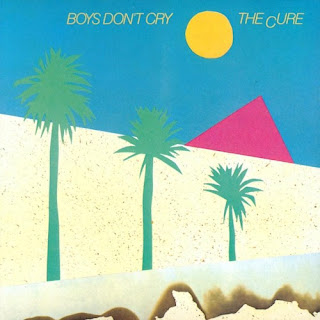THE CURE - KILLING AN ARAB
Released: December 22, 1978
Album: Standing on a beach
"Killing an Arab" is The Cure's first single, recorded during the sessions for their debut album "Three Imaginary Boys" in 1979. Although it was not included on the original UK release of the album, it did appear on the band's first US compilation album titled "Boys Don't Cry." The song's lyrics are inspired by Albert Camus' existential novel "The Stranger," also known as "The Outsider." The narrative of the song reflects the protagonist of the novel, who shoots an Arab man on a beach and then reflects on the act and its consequences.
Despite its literary inspiration and intention to explore existential themes, "Killing an Arab" sparked controversy due to its title. Many misunderstood the song as being racially motivated or promoting violence against Arabs, which led to backlash and misinterpretation. It's important to note that The Cure and Robert Smith have clarified numerous times that the song is not racist but rather a reflection on existential themes inspired by literature.
Initially recorded when they were signed to the German label Hansa, the song was met with disapproval from the label, which led to The Cure seeking their release and retaining the rights to their songs, including "Killing an Arab." Subsequently, the band distributed demo tapes containing their music, including the track to various labels. Chris Parry, then at Polydor but starting his own label, Fiction Records, expressed interest. The Cure signed with Fiction Records, and under Parry's guidance, they re-recorded "Killing an Arab" and other tracks like "10:15 Saturday Night."
This collaboration with Fiction Records was pivotal for The Cure's artistic development. Parry initially produced their early singles and debut album "Three Imaginary Boys." He soon allowed Robert Smith to take on more production responsibilities and creative control, which enabled the band to explore and innovate within the alternative rock genre.
During a show at Kingston Polytechnic in 1979, the student union initially objected to The Cure performing "Killing an Arab." Robert Smith managed to resolve the issue by explaining the literary origins of the song to the students, and it was eventually included in the set. At times, disaffected youth associated with groups like the National Front, often skinheads, attended Cure shows expecting something different, but they found that The Cure's music was more aligned with introspective and sensitive punk rock rather than the themes they expected. Despite verbal abuse, there were no major incidents of violence associated with the song.
The title of The Cure's singles collection "Standing on a Beach" (also known as "Staring at the Sea") is a reference to the passage in Albert Camus' book from which the song originated. Released in 1986, this compilation introduced American audiences to The Cure's earlier work and inadvertently revived the controversy surrounding "Killing an Arab."
The American-Arab Anti-Discrimination Committee raised concerns that the song could be misinterpreted and used to promote anti-Arab sentiment, particularly by certain DJs. They campaigned to pressure the record label to remove the track from the collection. Robert Smith refused to remove the song. Instead, he agreed to write a conciliatory message that was displayed on the album cover.
In response to contemporary sensitivities and ongoing concerns about potential misinterpretations, The Cure made a notable adjustment to the song. During their performances at European festivals in 2005, amidst the context of the Persian Gulf War and following the September 11 attacks, the band altered the lyrics from "Killing an Arab" to "Kissing an Arab."












Cap comentari:
Publica un comentari a l'entrada